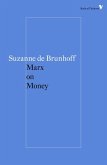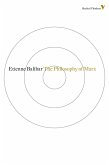When Value and Naturalism in Marx was first published in English in 1979, recent controversies in socialist economic theory had been concentrated on the tenability or untenability of Marx's labour theory of value. Marco Lippi's provocative book accepts the Sraffian correction of Marx's account of profits and prices, but goes on to ask the central question: why did Marx identify value with embodied labour-time? The answer, Lippi argues, lies in a strong-though little-discussed-naturalistic strain in Marx's thought. Through a novel analysis of the discussion of circulation costs in Volume Two of Capital, he contends that Marx operated with a concept of 'production in general', as a relationship of man to nature common to all forms of society, in which labour-time appears as the sole real cost. It was this general conception of production, he suggests, that underlay Marx's insistence that profits, interest, rent and faux frais represent no more than a redistribution of a pre-given total-the mass of surplus value, in a system in which total profit equalled total surplus value and total price total value. While Lippi rejects Marx's naturalistic identification of value with embodied labour-time, he claims that the account developed from it of the anarchy of the market, of commodity fetishism, and of the laws of motion of capitalism is in fact logically independent and retains all its empirical validity. Value and Naturalism in Marx, the work of one of the most outstanding younger economists in Italy, reveals the classic economic theory of historical materialism in a quite new light.
Dieser Download kann aus rechtlichen Gründen nur mit Rechnungsadresse in A, D ausgeliefert werden.









